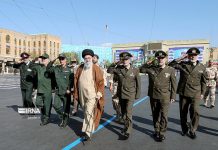In benighted times, there is comfort in remembering a central tenet of the German philosopher Friedrich Nietzsche, who argued in 1888’s „Twilight of the Idols” that adversity can be transformative. „What does not kill me makes me stronger,” Nietzsche wrote, coining a phrase now familiar in pop culture.
The same can be said of societies and nations. A powerful case in point is Israel, where exactly six months ago the rightwing government announced „judicial reforms” that were a thinly disguised authoritarian overhaul. The vulgar gambit sparked the ferocious awakening of a hitherto hibernating giant: the great political center of the troubled Jewish democracy.
The plan presented Jan. 4 had twin pillars. First, changing the meticulously balanced existing judicial appointments system to enable the government to appoint judges according to politics and patronage (the justification was that the court had been unduly liberal—which is false). And next, an „override clause” enabling parliament to overrule the Supreme Court by a simple majority—an insurance policy should puppets forget to be puppets.
Since the government has a parliament majority under Israel’s system, that would bring all three branches of government under the effective control of the prime minister. And since Israel has no constitution—only a set of basic laws which can be passed and amended by simple majorities (and a quasi-constitutional but vague 1948 Declaration of Independence)—this would eviscerate limits on executive power.
Other aspects of the plan were blatantly conceived to grease the wheels of corruption, including weakening the civil service, allowing politicians to more easily receive gifts, removing „reasonableness” as a consideration in jurisprudence and striking from the list of crimes „fraud and breach of trust”—which not coincidentally are among the charges currently facing Prime Minister Benjamin Netanyahu in his three-year corruption trial.
It was a veritable smorgasbord of chicanery and malfeasance, and a treat to lovers of the genre: The government was changing the rules of the game by giving itself the right to change the rules of the game.
On the face of it, there was not much to be done. Netanyahu’s coalition, which includes his pliant Likud Party plus an array of ultranationalist, racist, and religious groupings, enjoyed a majority of 64 out of 120 members in the parliament.
That majority resulted from a calamitous November election in which the democratic, liberal, and pluralistic sectors in Israel displayed the same indifference, complacency and disunity that plagues their equivalents all over the world. Moreover, careless splits that reflected the lack of focus invalidated 6 percent of the vote—all on the centrist-left side—turning what was a tie in terms of the actual people’s vote into a clear parliamentary majority for the Netanyahu camp.
The governing coalition thus appeared to have the power to try to grant itself omnipotence (which could even, theoretically, extend to cancelling future elections). If the Supreme Court struck down the new laws, a constitutional crisis would follow with results no one could foresee. The air of the Holy Land was thick with foreboding.
Then something miraculous happened. Mass non-violent demonstrations began organizing every weekend in Tel Aviv and then all around the country. Tens of thousands arrived at first. Then hundreds of thousands. Every week, for six months and counting.
Grassroots organizations began forming all across the country, representing peripheral towns, reservists in the military, multiple societal sectors and industries and myriad walks of life.
Critically, among the most vocal protests was that of the country’s world-beating high-tech sector that accounts for about a sixth of the economy, half the exports, and most of the growth; representing key leaders and the vast majority of the rank and file, they warned that investments would dry up and companies would relocate.
Polls began to show consistently that only a minority of the public—between a quarter and a third—supported the governmental coalition’s „reforms.”
Reservists began warning that they would no longer volunteer for duty. At one critical juncture, that included 37 of the 40 pilots in the country’s elite squadron. The defense minister, an old-school ex-general, warned Netanyahu that this path was endangering security; Netanyahu swiftly announced he would be fired, and that night masses took to the streets, blocking the main expressway in Tel Aviv.
A panicked Netanyahu then rescinded the dismissal of the defense minister and announced he was temporarily shelving the reforms. Fruitless negotiations were attempted between coalition and opposition politicians under the auspices of the country’s ceremonial president, Yitzhak Herzog.
For now, the main pillars of the overhaul are indeed stalled, with their futures uncertain. But blueprints and bills continue to be advanced—almost 200 in six months—virtually all somehow benefiting the coalition’s politicians. In general, the direction is a weakening of the rule of law and its gatekeepers, the law enforcement authorities and the judiciary. It is a process familiar from Poland and Hungary, and before that Turkey and most catastrophically Russia.
Global credit agencies have meanwhile slapped warnings on Israel’s economy. The shekel, whose strength underpinned a per capita GDP that in 2022 exceeded that of Germany, Britain and France, began to decline.
Israel is currently at a turning point in what is clearly an acute national crisis, as the government proceeds in a cleverer piecemeal fashion.
The protest movement has by now coalesced into a formal (if loose) structure. There is a voluntary headquarters acting as a facilitator that provides management, infrastructure, and funds, as well as coordinating legal counsel, logistics, campaigning, and media (among its leaders is Gilead Sher, one of the authors of this article). There are more than 200 movements, NGOs, organizations, and groups under this umbrella, and 150 regular protest locations throughout the country.
This movement is poised to ramp up, amid debate over how much to test the public’s patience with protests that take the form of disruptions of life; these make a strong point, but can also annoy people and create sympathy for the government.
Polls in recent months have shown that Netanyahu would be trounced if elections were held today, and that is where Nietzsche ‘s maxim comes in: The emerging political landscape is new, for the liberal side of Israel has struggled electorally ever since the bloody Palestinian Intifada of 2000-2004 persuaded many that there is no partner for peace.
The reason for the shift is that many voters of the „soft right” have moved to the center. And that happened because alongside a series of more banal failings—in internal security, cost of living and other areas—the authoritarian overhaul gambit has amounted to a shock not unlike Palestinian terrorism.
It is no exaggeration to say that those opposing it account for the overwhelming majority of the country’s economic production, and almost the entire leadership cadre of the security establishment as well as, of course, academia. In Israel, these groups still add up to something democratically consequential. It is just that until recently they were basically asleep at the wheel.

















